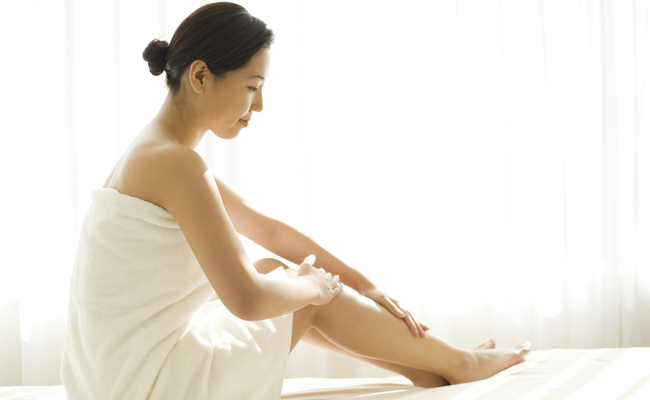
Stress and anxiety are major problems in the modern world, with anxiety disorders affecting about 70 percent of adults in Nigeria. That figure doesn’t even take into account undiagnosed anxiety and everyday stress. A self-care routine can be a vital part of combating stress and anxiety, helping to calm you down and normalize your stress response. And—bonus—these strategies can also be beneficial tools for helping you fall asleep! Next time you need to chill out, consider these 10 natural stress reduction techniques.
Breathing Exercises
Did you know that by breathing slowly and steadily, you can actually change your body’s physiological state, which will have the effect of calming you down? Anxieties.com explains:
“By shifting your breathing rate and pattern, you can stimulate the body’s parasympathetic response. This is the body’s equally powerful and opposite system to the Emergency Response and is often called the relaxation response.”
There are many different breathing techniques you can try, but beginners will want to simply focus on breathing more slowly. Close your eyes and inhale while counting to seven. Hold your breath at the top for about three to four seconds, and then slowly release it while counting to seven again. Repeat this for as long as it takes for you to feel calmer and more collected.
Mandalas
Mandalas are beautiful and intricate images that are important to many Indian religions. Traditionally, they signify the universe, but for the purposes of reducing anxiety, they can mean anything you’d like them to mean.
To draw a mandala, start with a symmetrical image such as a petaled flower or star. After drawing this item, add circles of symmetrical designs around it. For example, you may draw a circle of tiny dots or braided lines around the entire image. Continue adding layers, coloring in the spaces between and adding additional designs. The repetitive experience of drawing mandalas is therapeutic and meditative, and can take your mind off of your anxiety.
Adult Coloring Books
Adult coloring books are all the rage right now, and for good reason. Coloring can be a major stress-reliever as it forces your brain to focus on the task at hand rather than whatever it is you are anxious about. Purchase an adult coloring book and some colored pencils, and use them while listening to some calm music.
Guided Meditations
Thanks to the wonders of the internet, there are thousands of guided meditations at our fingertips. A quick search on YouTube can reveal meditations for whatever you want to focus on. Want to relax thinking of lying on the beach on a sunny day? There’s a meditation for that. Want to let go of a past relationship? Yep, there’s a meditation for that too.
Obviously, non-guided meditation is a great stress reliever as well, but the aspect of being guided can take some of the pressure off you as the meditator, allowing you to relinquish control of your own mind and instead relax and enjoy the experience.
Aromatherapy
Aromatherapy is an effective means for treating anxiety and stress. Our brains are hardwired to respond to scents, which is why the smell of freshly baked cookies can make you feel jolly and cozy during the holiday season. The same theory applies to stress.
Some of the most calming scents out there are ylang ylang, chamomile, lavender, rose, frankincense and vetiver.
While there are plenty of scents that tend to be calming, it’s really whatever YOU find peaceful or joyous that you should use. If, for example, the smell of oranges really makes you happy, there’s no reason not to use orange rather than calming chamomile.
When you identify a few scents that make you feel calm, happy and positive, you can add essential oils to your cleaning products, dap a few drops on your wrists, or add them to unscented lotions or soaps.
Journaling
Journaling can be a great way to work through anxieties. You can try a few different techniques, too. For example, while some people may like to get ready for bed by journaling what happened that day, others may choose to write prompts for themselves that focus on specific issues they are working through.
For example, if you have anger issues, you may choose to answer questions such as: “What made me angry today?” and, furthermore, “WHY did that make me angry?” Ask yourself questions that provoke you to delve deep into the underlying causes of your stress and anxiety. Always ask yourself “WHY do I feel this way?”
ASMR
Autonomous Sensory Meridian Response, or ASMR, is a fairly new concept and still largely unstudied. ASMR is a response that doesn’t occur in everyone, but if your brain reacts to it, you’ll recognize the concept immediately. Certain noises (such as soft whispers or tapping sounds), images (the sight of hands pointing or tapping) and other sensory stimuli can provoke a calming, pleasurable response akin to a tingly brain, or, as some ASMR-devotees call it, a “brain orgasm.”
“It’s a shortcut to a blissed-out meditative state that allows you to watch long videos that for someone who doesn’t have ASMR are mind-meltingly dull,” explains Vice. “Triggers can include getting a massage or a haircut or a manicure, or hearing someone talk in a soothing tone of voice, or even just watching someone pay extremely close attention to a task, like assembling a model.”
If this sounds like something you’ve experienced, do a quick YouTube search for ASMR. You’ll find thousands of videos designed specifically for the purpose of calming you down with these kinds of stimuli.
Routines
It sounds obvious, but creating routines for yourself can be a great way to combat anxiety. Knowing exactly what will happen each morning, lunch hour and evening can reduce a lot of the unpredictability of life, giving you something calm and soothing to rely on.
Create an energy-inducing morning routine, daily lunchtime routine and calming bedtime routine to give yourself calm and stability.
Herbal Tea
Herbal teas such as chamomile, peppermint, dandelion or rose can be great for combating stress. Pour a warm cuppa during your bedtime routine or for an afternoon pick-me up.
Self-Massage
Don’t get thinking you need an expensive massage to calm yourself down. You can effectively reduce stress by massaging yourself at home. Giving yourself a foot massage is an obvious choice, but scalp and facial massages are also amazing when done solo. Grab some of your favorite body oil or moisturizer (preferably scented with calming essential oils) and chill out.






